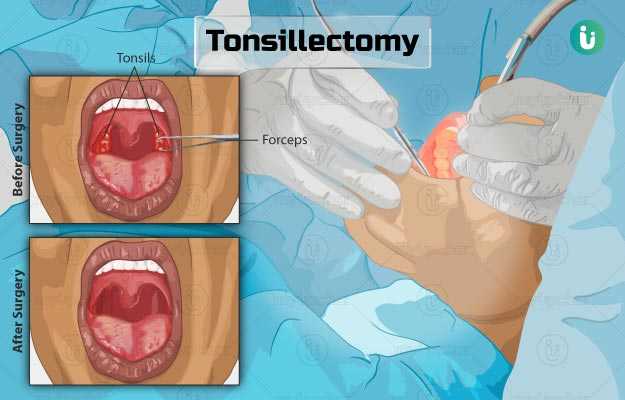Summary
Tonsils are the two small, round glands situated at the back of the mouth. Tonsillectomy refers to the surgical removal of tonsils. It is a common procedure that is recommended for the treatment of problems like sleep apnea and swallowing and feeding problems that occur due to recurrent tonsillitis (inflammation of the tonsils). Tonsillectomy usually takes around 30 to 45 minutes. An ear, nose, and throat (ENT) surgeon will perform the procedure. You will be under general anaesthesia throughout the surgery. Recovery after this procedure may take a few weeks.






































